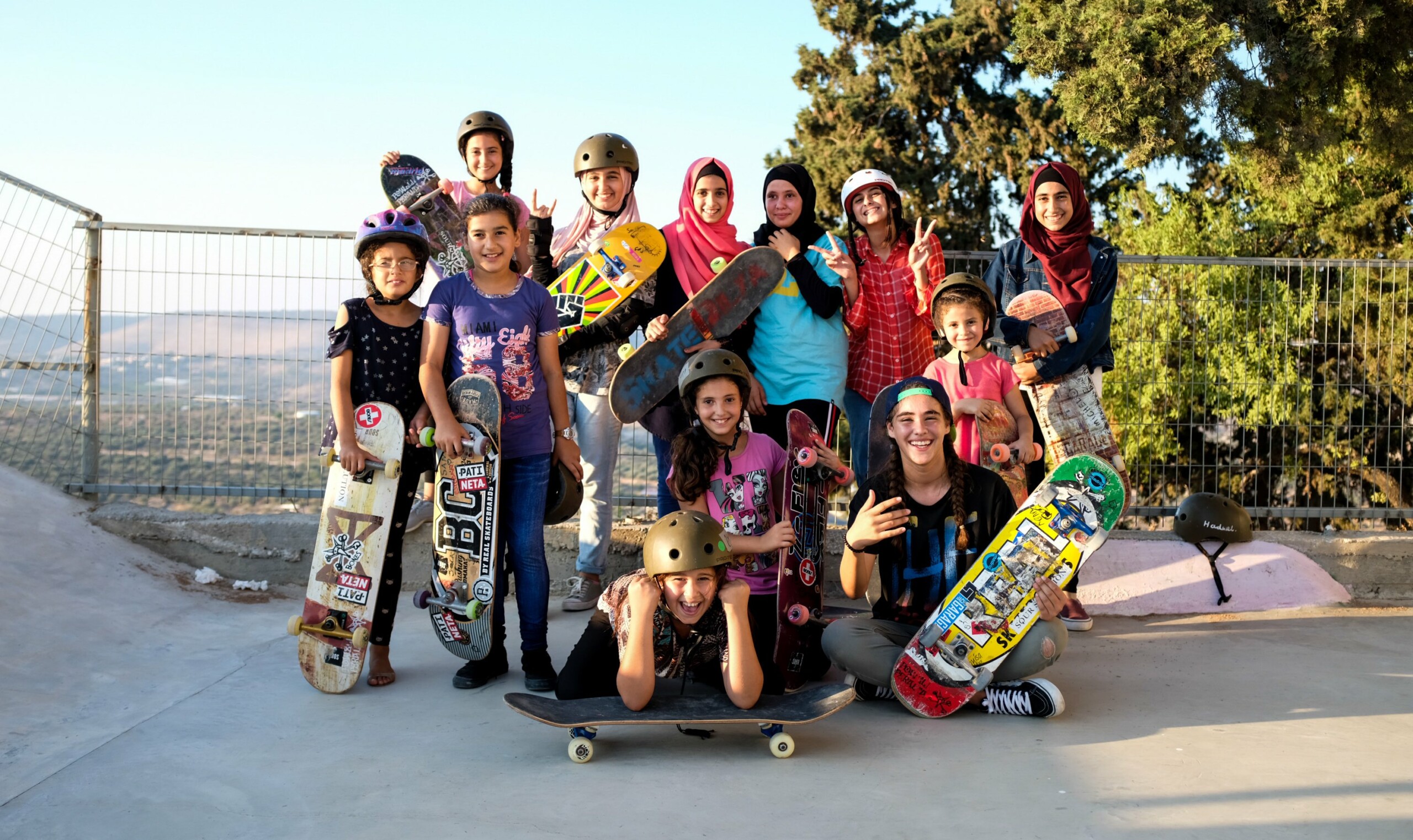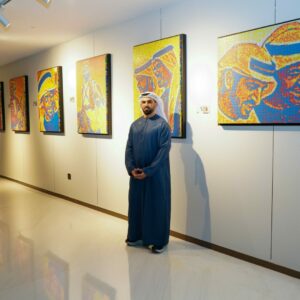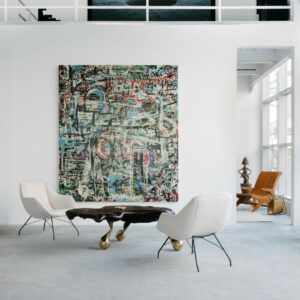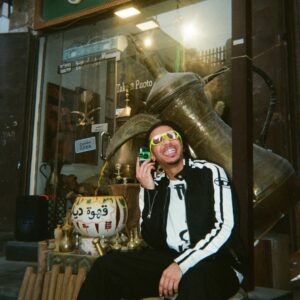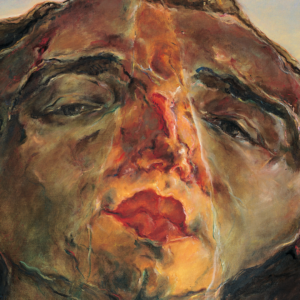Though he didn’t know it at the time, the genesis of SkatePal (Instagram) occurred when Charlie Davies, then an English teacher, was skating through Jenin’s streets with his board after class. At the time, Davis never imagined that his routine would ignite a skating revolution in Occupied Palestine. “Right in the beginning, when I first went off to school, I had my skateboard, and I could see kids were quite excited by it,” Davis reminisces. “They hadn’t really seen anything like it.” In a region where overcrowding and the constant specter of violence limit play spaces, the novelty of skateboarding stirred a wave of excitement among the youth. This simple act of skateboarding, so common in some parts of the world, was new here, and it quickly caught on among the local youth. They were drawn to the freedom and fluidity it offered, a stark contrast to their daily realities.
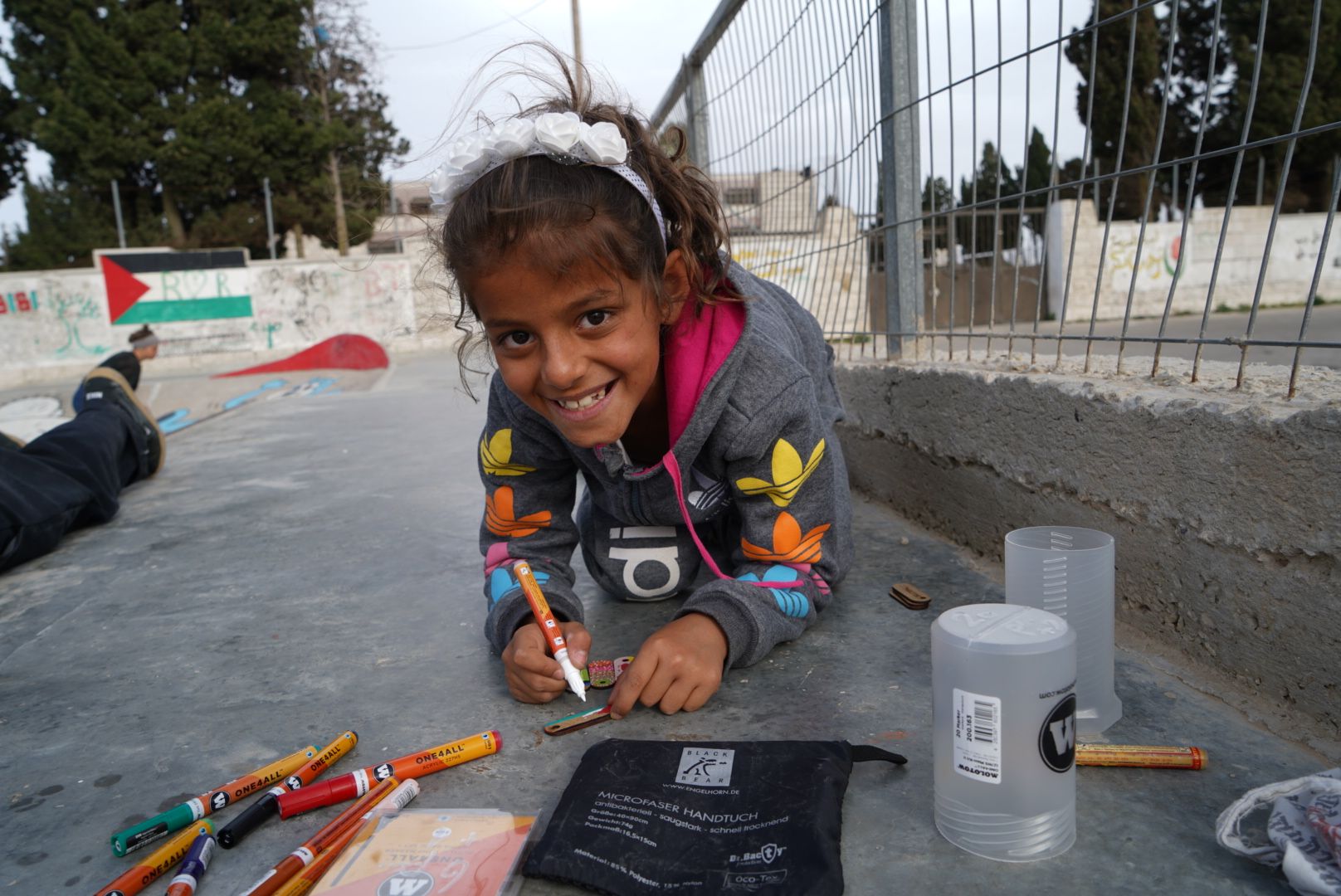
The attention it garnered from local children sparked an idea that eventually grew into a mission. “I wasn’t surprised that the kids were into it,” Davies reflects, acknowledging the universal appeal of skateboarding. “But I wasn’t sure how other people would react. Because obviously skateboarding in say, America or Europe or East Asia, it was seen as counter culture, and people didn’t necessary like it initially. But people generally saw it as something without any cultural baggage, be it good or bad.”
Unbeknownst to him at the time, Davies’s later return to Palestine, post his Arabic studies in the UK, marked the beginning of something profound. In 2013, he launched SkatePal’s first project in Ramallah. “I reached out to some local groups, and one in Ramallah jumped on board. We didn’t know if it would take off, but the kids were all in,” he says. “We had kids coming for three, four assessments, six sessions every day at six-week summer camp. And that’s when I met Aram. We hung out every night, skating together. It was nice.”
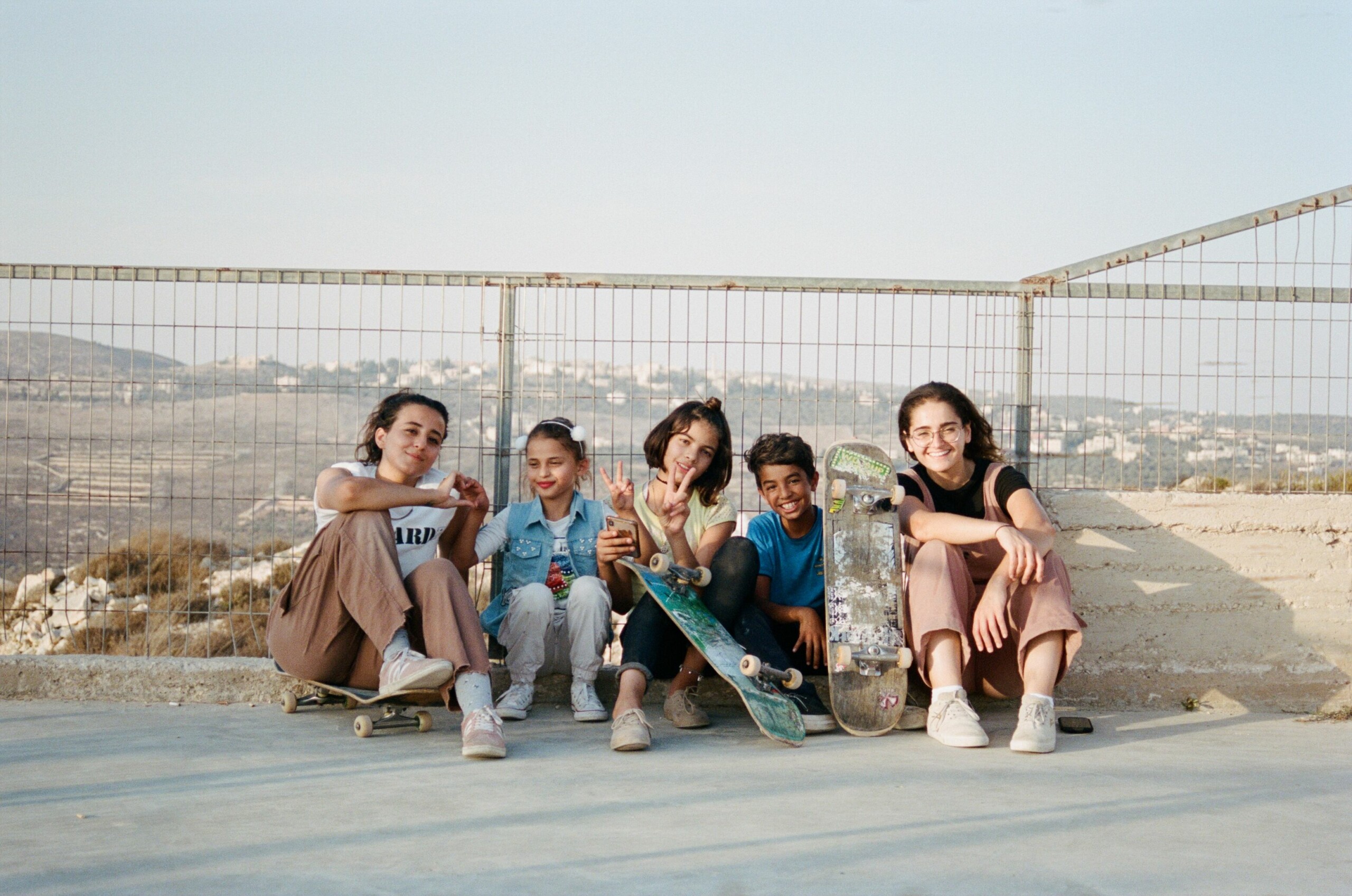
Davies’s initial vision of a one-time project quickly snowballed into something larger. “We thought it’d be a one-off thing, but then more folks wanted in. It got bigger than just skating around,” he says. This transition from a passion project to an organization was spurred by the realization that official status would allow for broader reach and impact. “Becoming an organization meant we could officially accept donations and expand our activities.”
In Palestine, skateboarding was free from the counter-culture tag it often carried in the West. “It was just skateboarding, plain and simple, without any preconceived notions attached to it. People were open to it, which was heartening,” Davies explains. The unadorned introduction of skateboarding allowed it to seamlessly integrate into the local culture.
Under Davies’s leadership, SkatePal has constructed a handful of skate parks across Palestine, creating more than just physical structures, but fostering community spaces for kids to momentarily escape the harsh realities of life. Their first park in Asira Al-Shamaliya in 2015, followed by others in Ramallah, Al-Bireh, and Jayyous, exemplifies this. By working with local organizations like The Palestinian House of Friendship, SkateQilya, and Asira Al-Shamaliya, SkatePal ensures that it effectively integrates into the surrounding local Palestinian communities and that their projects are for the benefit of the people accessing them.
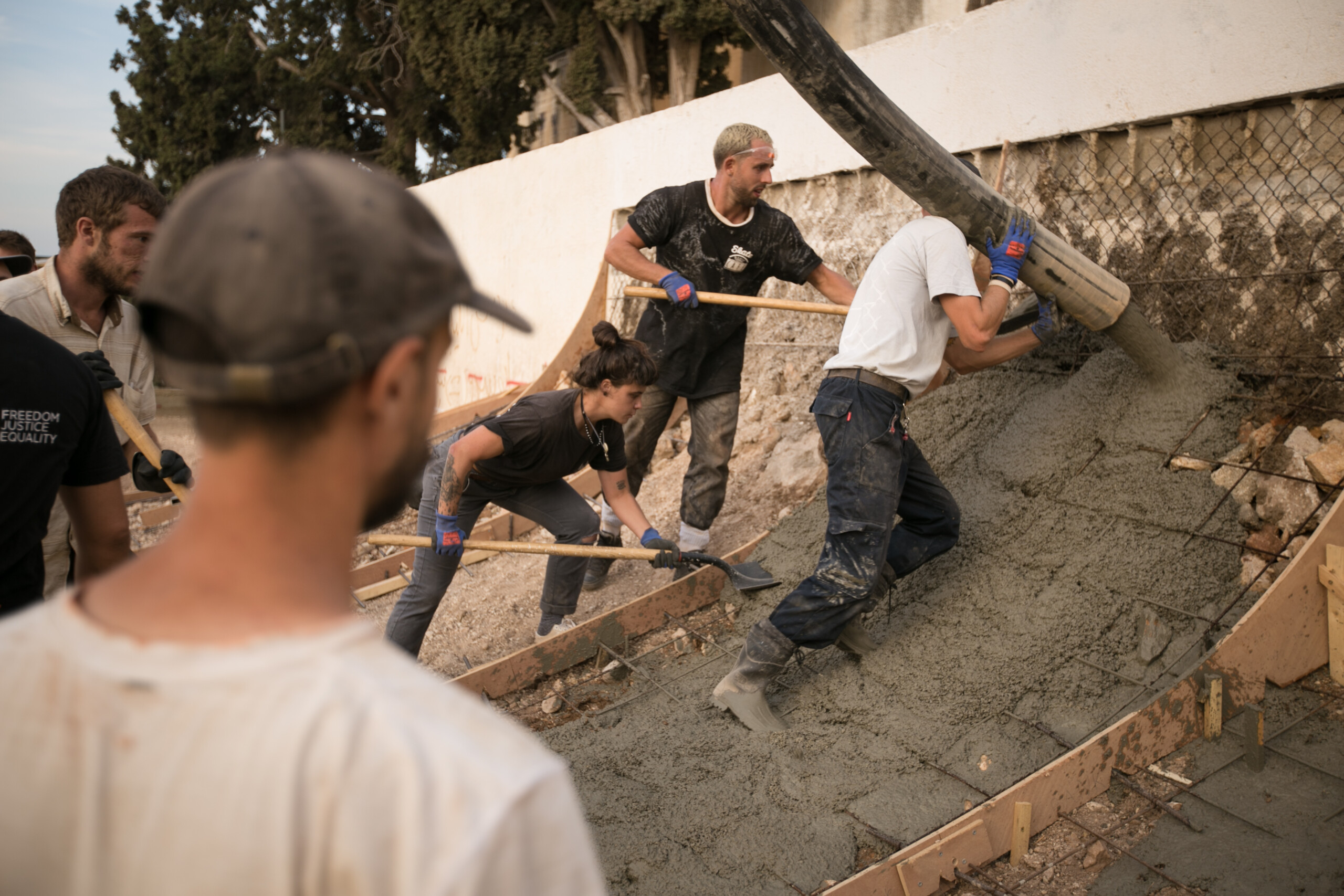
Davies quickly realized the importance of long-term commitment and local involvement. “I think at the beginning, I thought I it would just be like, I build a park and hand it over to someone to manage it. But over the years, I realized that we have to be committed for, at least, five years in a place,” he notes. This commitment meant building relationships, understanding local dynamics, and fostering local leadership.
“We teamed up with local NGOs and councils for our big projects. It was about building trust and making sure we were all in this together,” he says. “We wanted the projects led by local people because it’s never going to grow if people are waiting for us.” This approach wasn’t just about building skateparks, but about nurturing a sense of ownership and participation within the community. “It was important to spend a lot of time in the place and get to know the kids and their families. Davies knew from the onset that for SkatePal to thrive, it had to be embraced by the locals themselves. “We wanted to get away from the idea of waiting for the ‘white guy’ to arrive,” he explains. A crucial aspect of SkatePal’s mission is empowering local skaters. Aram Sabbah, once a beneficiary of SkatePal, now manages their sites and coordinates classes and volunteer programs.
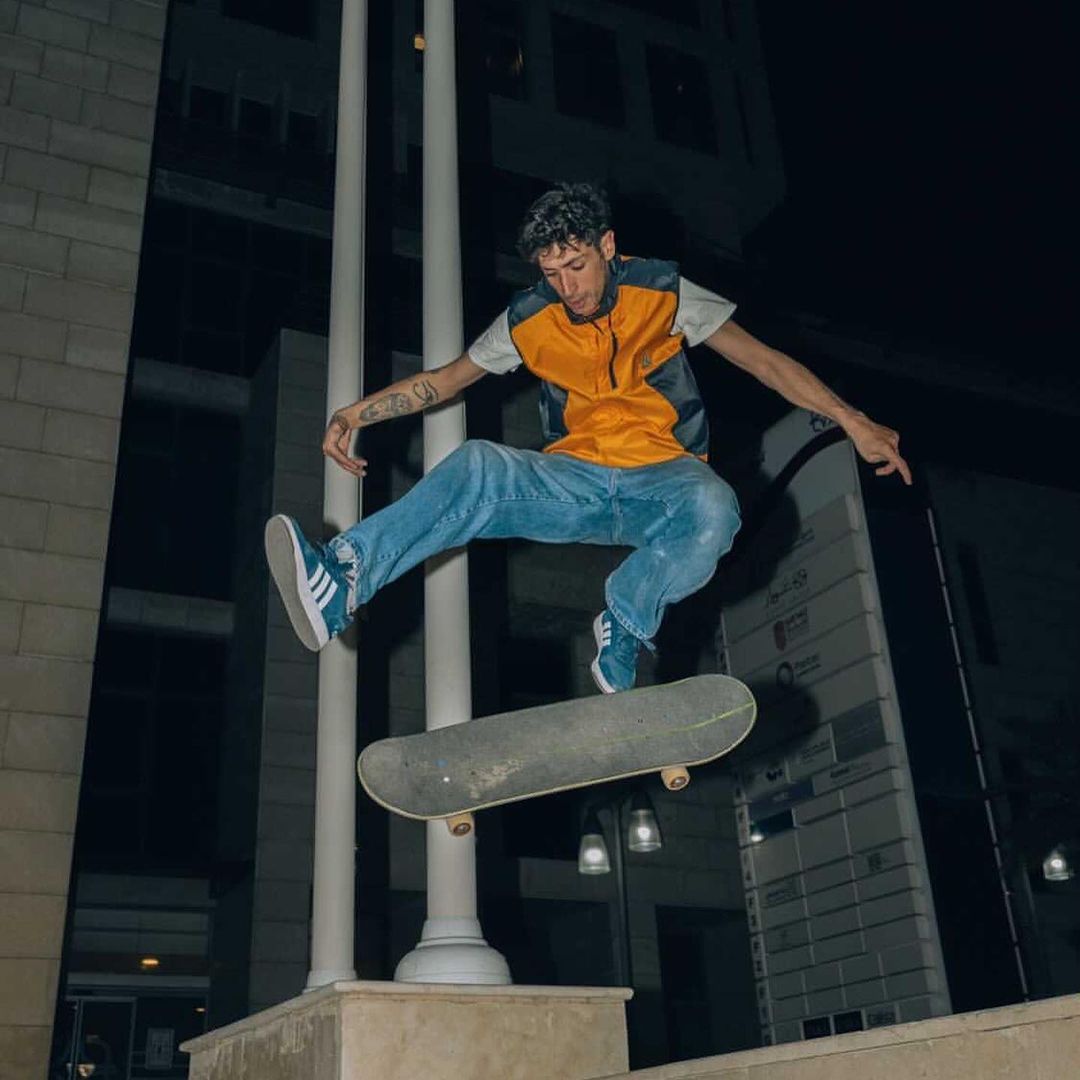
Navigating the complexities of bringing skateboarding to Palestine, Charlie Davis encountered more than just cultural barriers, he also faced logistical nightmares, particularly with Israeli customs and the unpredictability of shipments. “You have issues in terms of actually getting in, through Israel, and sending things on the customs and imports. It’s sort of arbitrary, hard to manage, and expensive,” Davies explains, detailing the challenges SkatePal faces in their mission. The unpredictability of these shipments added another layer of difficulty. “Sometimes we did a shipment, and only half of it gets through; other times, it gets lost,” he shares, highlighting the obstacles in setting up a sustainable supply of skateboards.
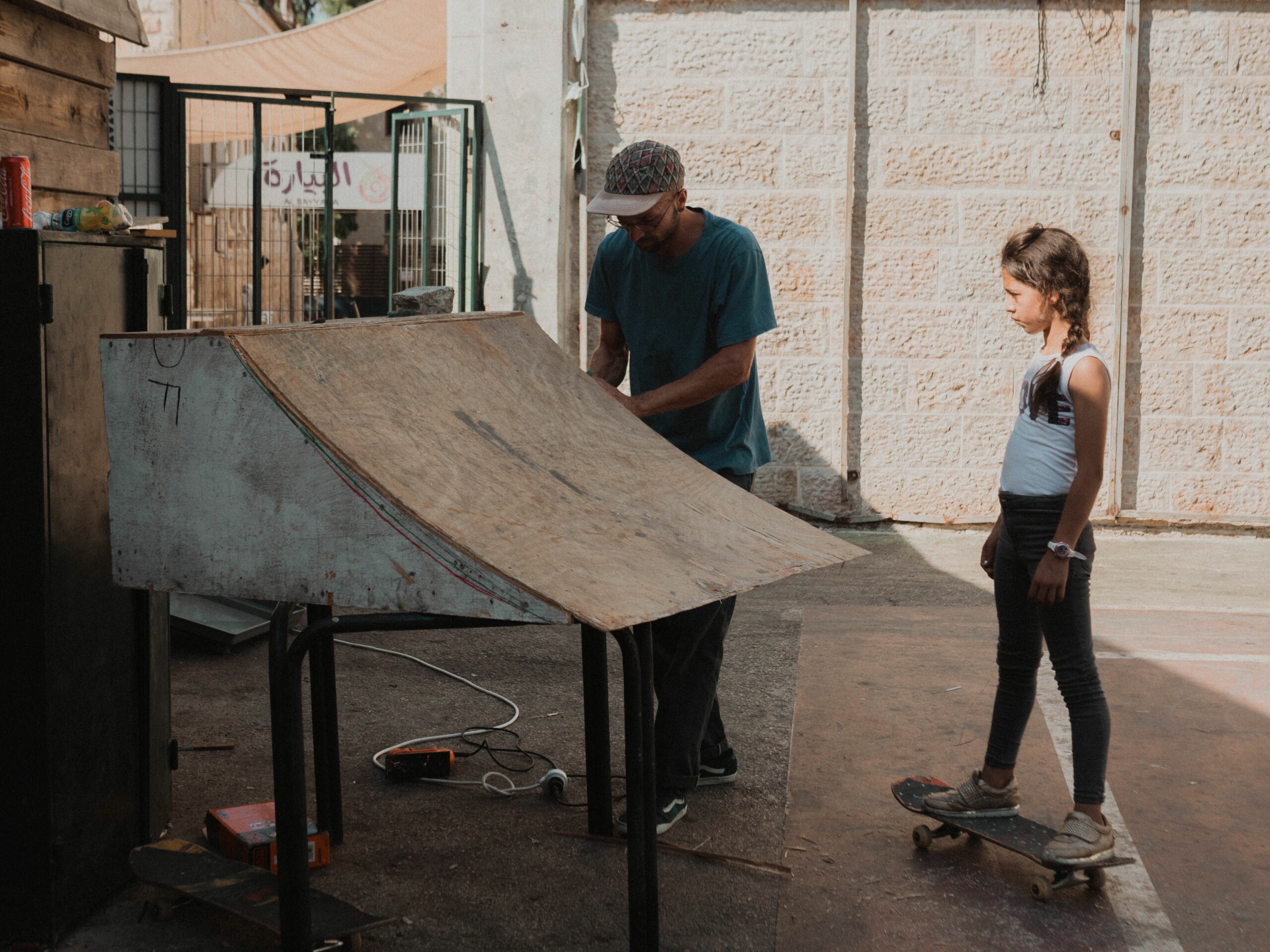
This issue of supply extended to the viability of skate shops in Palestine. “Just having a skate shop on its own is not a very lucrative job,” Charlie admits, pointing out the need for diversification in their approach. “In places like Edinburgh, skate shops rely on selling not just skateboards, but also other items like shoes and brands like Carhart. It’s challenging to maintain enough skateboards all the time without selling other stuff.”
Aram Sabbah, now a key figure in SkatePal, also underscores the importance of self-sufficiency. When asked about his dream for the future of skating in Palestine, he envisions an empowered, independent skate culture. “My dream is simple. I hope we can have our own skate shop and more skate parks. I want skaters to have all the equipment they need, to use skateboarding as a tool to feel free, to face the world and the occupation,” Sabbah expresses passionately. His vision extends beyond equipment. He seeks more support for sports and the expression of individual identities. “I want to lift my young students, help them become tomorrow’s skaters in Palestine, not needing to rely on NGOs. I envision them as one family, united and self-reliant.”
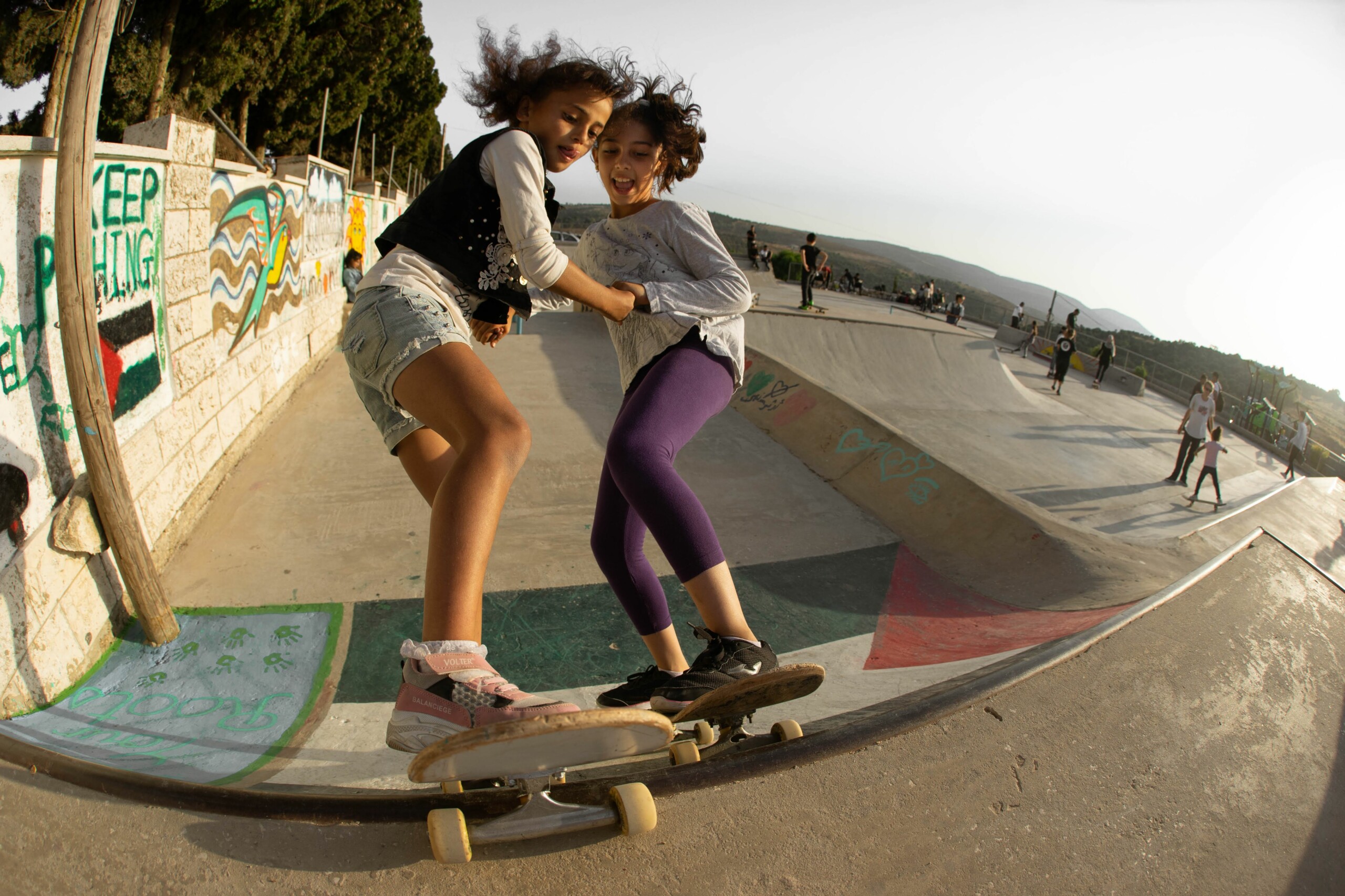
Davies and Sabbah both want a self-sustaining community, where skateboarding is a symbol of freedom and personal expression. The journey wasn’t just about building skate parks but also about nurturing a culture. Davies observed, “Going forward in the future. Another issue that that you’re going to see obviously, is that a lot of the older skaters who could be the ones to stay and grow things long-term, they’re going to want to emigrate somewhere else. “And I don’t blame anyone for wanting to do that. I think I would do the same ” Recognizing this, the focus shifted to creating a sustainable skateboarding ecosystem in more populous, urban settings like Ramallah, where there was more potential for growth. “Because if you do it in the villages only, you do a lot of good in the community, and you can build up leaders, but then often those people will leave the village. And so if you have them in the main town, then it spreads out and becomes more robust,” says Davies.
Beyond physical activity, SkatePal has opened doors to education and personal development. Davies notes improvements in English proficiency among the young skaters, a by-product of their interaction with international volunteers and a reflection of the broader educational implications of their programs. Through skateboarding, they find both an outlet for expression and a path to better concentration in class. But more than that, SkatePal offers a space of play and freedom—a rare commodity in a place where such opportunities are scarce.
As Sabbah points out, “In the skate classes, the children discovered a space where their individuality can shine, and they began to truly see and appreciate one another, fostering a newfound sense of empathy and mutual understanding.” This sentiment echoes Davies’s observation that “It’s hard to measure happiness derived from playing, but it’s something that is overlooked. These benefits, though hard to quantify, are just as vital as the physical aspect of skateboarding.” 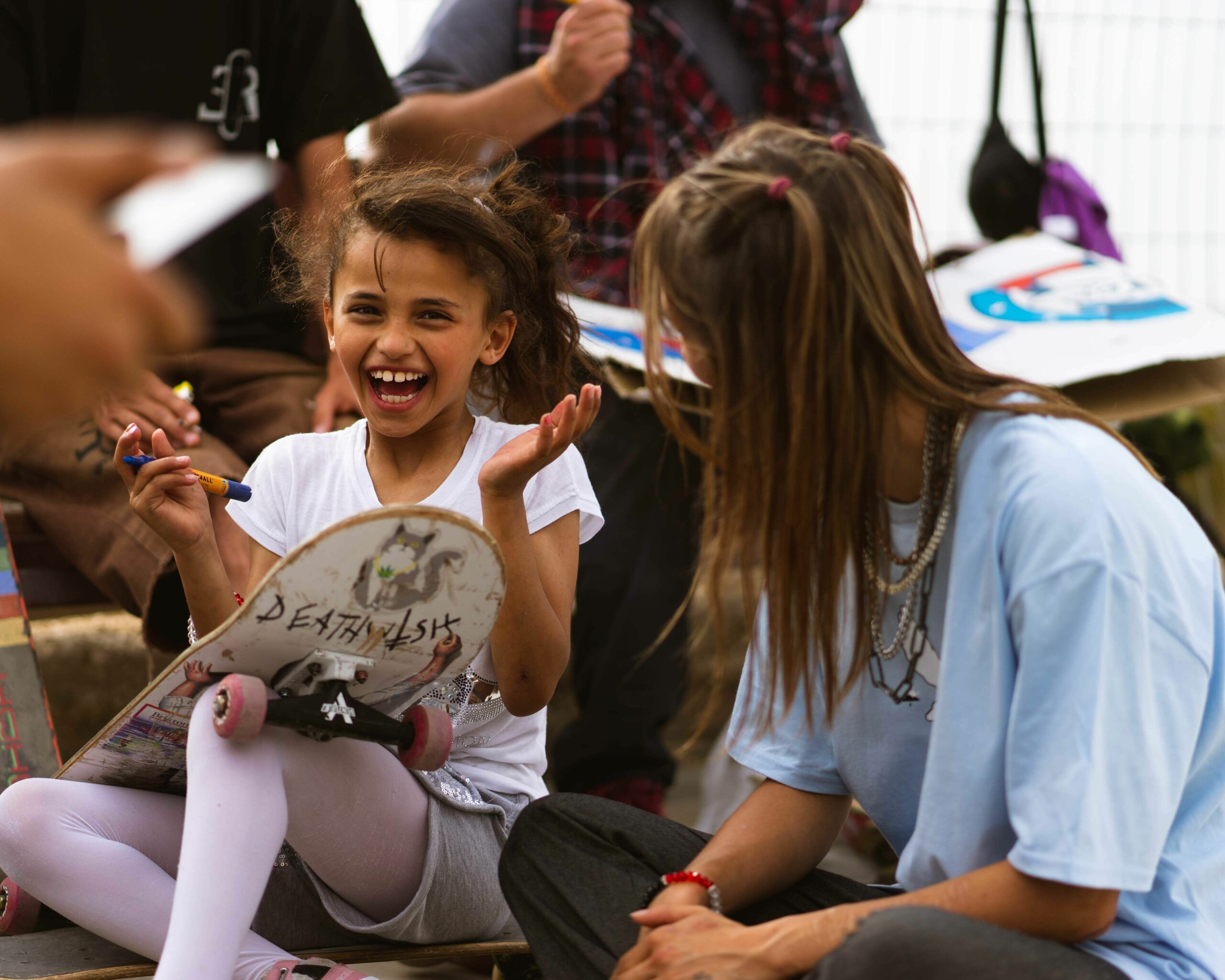
Inclusivity has been a cornerstone of SkatePal’s mission. Despite initial resistance from conservative quarters, SkatePal has remained steadfast in its commitment to accessibility. “All the skate parks that we do, we specify at the beginning, these have to be open to everyone, and they have to be free, and we’ll provide free classes,” Davies asserts. This inclusive approach has not only democratized access to skateboarding but has also facilitated a cultural shift, enabling both boys and girls to participate and learn together. “Ultimately, this is a space which is up to the village to decide what to do with it, and hopefully, get managed by the local NGO and the council. “
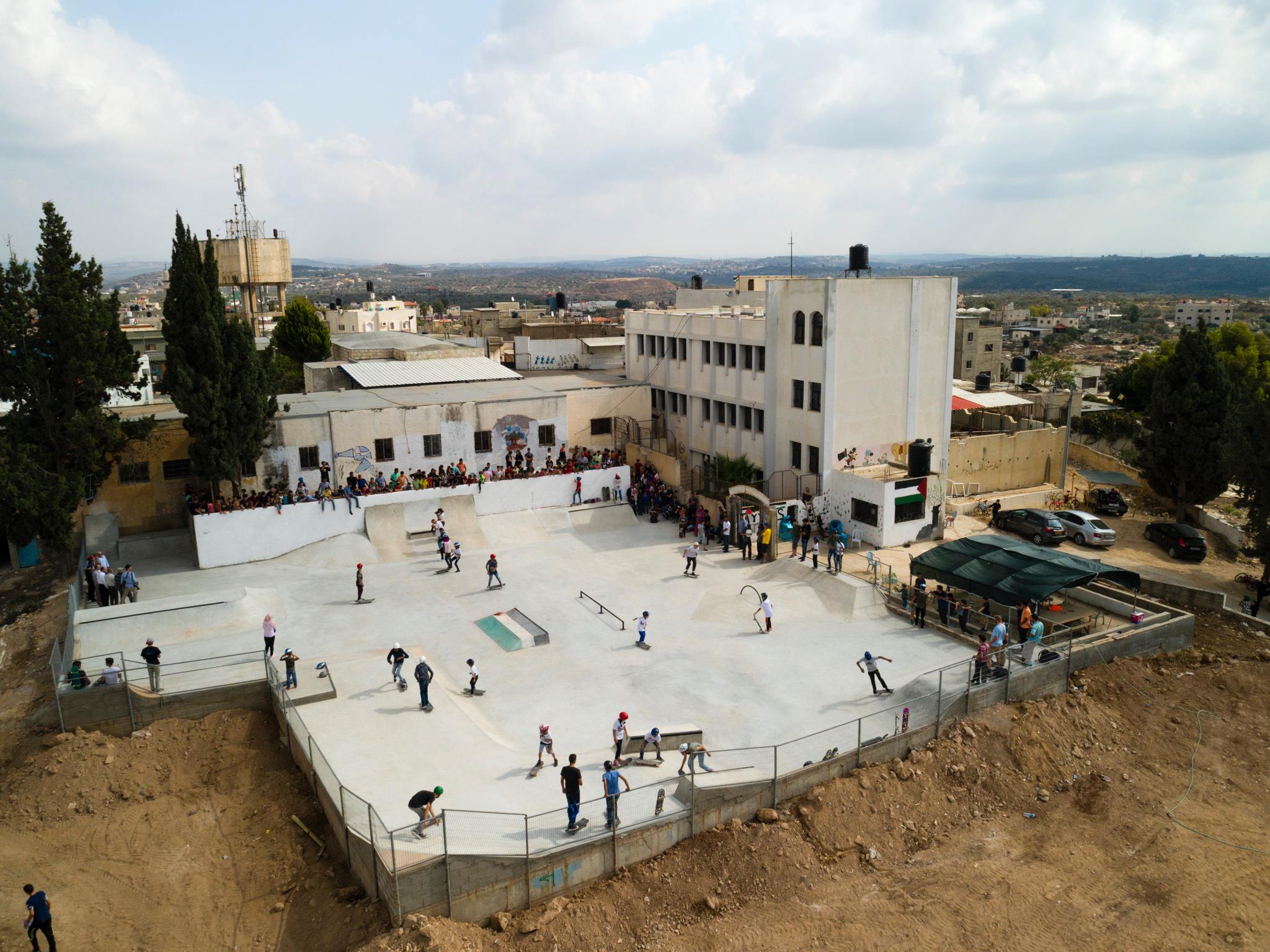
Looking ahead, Davies envisions a skate scene that stands on its own feet. “The ultimate goal is to not need to exist anymore, and the local scene thrives independently. That’s what we’re working towards,” he explains. The idea is to transition from being the driving force to a supportive role, encouraging the local skate community to take the lead. The organization is shifting towards training locals in skatepark construction and management, reducing reliance on international volunteers.
“And so I’d imagine that we’d still be going as an organization, but we wouldn’t be managing things on the ground there. But we would like mainly be kind of a more of a business that’s making money to fund things that are happening there and to encourage people to go and visit,” Davies concludes, outlining a future where SkatePal continues to inspire and support the Palestinian skateboarding community, with a more hands-off approach. “Just so there is a constant interest of skaters who are going to visit because that’s how you get a steam line moving.”
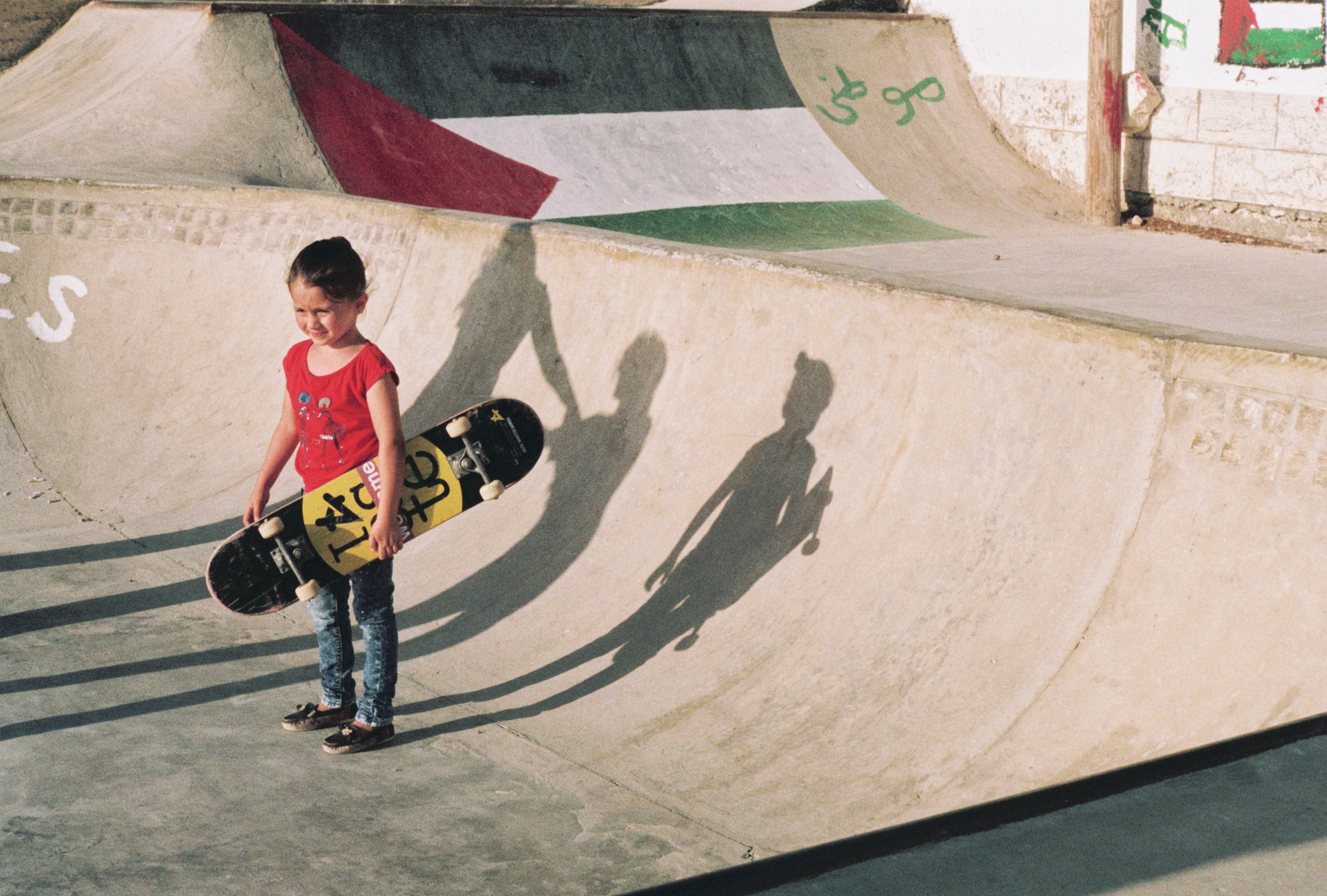
From a simple skateboard in the streets of Jenin to a network of skateparks across Palestine, SkatePal is about connecting through sport, building community, and empowering youth, one skateboard at a time.
For more stories like this out of Palestine, head to our dedicated Arts & Culture pages.
